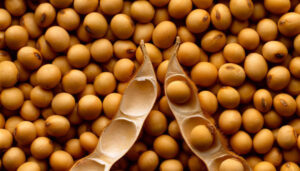
In January-May this year, Ukraine reduced pig iron exports in physical terms by 19.6% year-on-year to 507.106 thousand tons.
According to statistics released by the State Customs Service (SCS) on Thursday, pig iron exports in monetary terms decreased by 22.3% to $189.600 million during the period.
At the same time, exports were carried out mainly to the United States (78.55% of supplies in monetary terms), Italy (6.49%) and Poland (5.77%).
In the first five months of the year, the country imported 15 tons of pig iron worth $35 thousand from Germany (there were no imports in January, March and May), while in the same period in 2023 it imported 37 tons of pig iron worth $52 thousand.
As reported, in 2023, Ukraine reduced exports of processed pig iron in physical terms by 5.8% compared to 2022 – to 1 million 248.512 thousand tons, while exports in monetary terms decreased by 26.2% to $ 471.467 million. Deliveries were made mainly to Poland (51.91% of supplies in monetary terms), Spain (21.41%) and the United States (13.15%).
In 2023, Ukraine imported 154 tons of pig iron worth $156 thousand from Germany (42.31%), Brazil (41.67%) and Poland (16.03%), compared to 40 tons of pig iron worth $23 thousand in 2022.
In 2022, Ukraine reduced exports of processed pig iron by 59% in physical terms compared to the previous year to 1 million 325.275 thousand tons, and by 61.1% in monetary terms to $638.774 million.
In 2022, Ukraine imported 40 tons of pig iron worth $23 thousand, while in 2021 it imported 185 tons of pig iron worth $226 thousand. Exports were mainly to the United States (38.47% of supplies in monetary terms), Poland (32.91%) and Turkey (8.12%), while imports were made from Germany (100%).

The State Service of Ukraine for Food Safety and Consumer Protection and the Ministry of Foreign Affairs of Ukraine have agreed on veterinary certificates with the competent authorities of Canada, so that Ukrainian egg producers will be able to export their products to Canada, the ministry’s press service reports.
“The systematic work of the Ministry of Foreign Affairs of Ukraine together with the State Service of Ukraine for Food Safety and Consumer Protection allows us to continue to open up new opportunities for Ukrainian products in the world. We realize how important it is to support Ukrainian exporters, especially during the war. That is why we are in constant negotiations with foreign partners in this regard and step by step we are opening new markets for Ukrainian companies,” said Foreign Minister Dmytro Kuleba.
“The new market means economic stability for the national producer, preservation of jobs, especially during the war, and strengthening Ukraine’s competitiveness on the global trade arena.
Together with Ukrainian diplomats, we continue to work in this direction,” said Serhiy Tkachuk, Head of the State Service of Ukraine for Food Safety and Consumer Protection.
The agency informed that the certificate forms have already been published on its official web portal in the “Export Certificates from Ukraine” section of the “International Cooperation” section. Explanations of the requirements of Canadian legislation are available in the section “Requirements of the countries of the world”.
“Exports of egg products to Canada are possible only if you cooperate with licensed importers in Canada,” the State Service of Ukraine on Food Safety and Consumer Protection warned.

As of June 3, soybean exports from Ukraine slowed down and amounted to only 1500 tons, while significant stocks of 700-800 thousand tons remain in warehouses, according to the analytical cooperative “Start”, created within the framework of the All-Ukrainian Agrarian Council (AAC).
“The soybean market is now in the off-season period, when the activity is significantly reduced. The main liquidity is currently provided by processors who maintain a high level of demand for raw materials. The average purchase price from processors already exceeds 19 thousand UAH/ton, and further price growth can be expected. Soybean exports are expected to remain weak in the coming months. Most of the transactions are made for cash. This also affects the volume of supplies abroad. On the stock market of soybeans, we are likely to see the downward trend reversal and attempts of growth,” the analysts said.
The experts also added that despite the overall weakness of exports, there are positive signals from the Polish market.
“Polish companies are showing considerable interest in Ukrainian soybeans. On the border with Poland, soybean prices are $410-415/ton. In the ports, the conditional prices on CPT basis are about $435-440/ton,” the UAC stated.

The area under sugar beet has increased by almost 20% to 250 thousand hectares during the war, which has become a good diversification option for farmers who have switched from growing grain to this crop, said Yana Kavushevska, acting chairman of the board of the National Association of Sugar Producers Ukrtsukor.
“During the war, the industry demonstrated resilience and became an island of salvation for some farmers who managed to switch from growing grain to sugar beet in time,” she said at Grain Ukraine in Kyiv.
According to Kavushevska, in 2020, 216 thou hectares were planted with sugar beet in Ukraine. However, for two years in a row, the country has been allocating 250 thou hectares for this crop, which indicates an increase of almost 20%. This is due to the areas planted by independent farmers and agricultural companies that have made a conscious choice in favor of sugar beet and saw it as a profit opportunity.
The acting chairman of the board of Ukrtsukor explained the success of the industry by the favorable situation on the world market, where sugar prices have been among the highest since 2006. In addition, it was easier for Ukrainian producers to export sugar than grain.
“There were logistical problems. Of course, sugar producers, like grain producers, are interested in keeping the ports of Greater Odesa open and working properly. But exports by land were also quite active,” she stated.
Another positive factor for the revitalization of the Ukrainian sugar industry, according to the representative of the industry association, is duty-free trade with the EU, which Ukrainian producers have actively used and increased exports.
Speaking about the imposition of restrictions on Ukrainian sugar by the EU, Kavushevska noted that Ukrainian producers have resumed exporting sugar not only to the EU, but also to the Black Sea and West Africa.
“As of May, Ukraine exported 65% of sugar to the European Union, and 35% went to countries where our sugar is also in demand. In fact, in May, Ukraine set a record for monthly sugar exports: within 30 days, we exported 108 thousand tons of sugar,” the representative of the association emphasized.
Ms. Kavushevska also noted that sugar prices are currently being corrected on the global market. She admitted that the financial results for Ukrainian producers may not be as good as before. However, for the third year in a row, sugar beet will remain among the top three most profitable crops for Ukrainian farmers, which is a good alternative to grain.
The head of Ukrtsukr also emphasized the importance of cooperation with specialized European sugar producer associations, pointed out the need to integrate Ukrainian products into the EU and reminded that the industry counts on the support of the state and its trade representatives who will negotiate the revision of autonomous trade measures and the association agreement.

In January-May 2024, Ukraine exported 589.86 tons of organic honey, which exceeds last year’s figures, the OrganikInfo portal reported, citing data from the Organic Standard certification body.
According to the report, in recent years, the dynamics of growth in organic honey exports has been observed. Thus, in 2021, 269.33 tons of honey were exported abroad, in 2022 – 698.05 tons, and in 2023 – 702.9 tons.
“Organic honey is not among the top 10 products exported from Ukraine, but Ukraine remains one of the leading exporters of honey, including organic honey, and demand in the world is only growing,” said organic market analysts.
According to the data, in 2022, honey ranks 4th in terms of the volume of products imported to the EU and has a share of 9.2% of all organic imports.